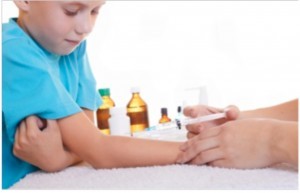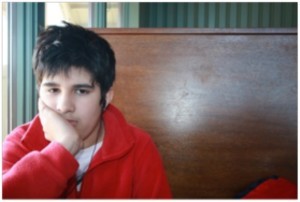Being a teenager is difficult enough, but being a young male teenager with haemophilia is challenging. Whilst parents need patience, a sense of humour and a bottomless bank account, their son needs both the security of home and the space to grow to the independence of adult life.
Most children will have learnt everything they need to know about their haemophilia before puberty. They should be in command going into adolescence, should know exactly when to ask for treatment, know the dose, know how to mix their concentrate, and self-infuse. They should be in a position to then forget about it and get on with their far more exciting life with their friends at home and school.
If this has not happened haemophilia can make adolescence very difficult for a while. Children can be angry and frightened, so it is very important for families to allow their children take responsibility for their haemophilia as they gradually grow up.
The choice of career is important, especially in the current climate. Whatever career is chosen, there are obvious benefits in becoming as highly qualified as possible, as the choice is obviously much wider. All schools have easy access to advice about careers, but sometimes this is given rather late in the day. In the context of haemophilia it is important that the possibilities are explored sooner rather than later. Early planning helps ensure that any disruption caused by untoward bleeding is catered for. Most youngsters need time to develop their own ideas about what they want to do with their lives; early decisions can always be changed later in the light of new interests and work experience. When doubt about choice of career persists, a consultation with an educational psychologist may help to point an indecisive teenager in the right direction.
The knowledge that haemophilia is inherited and that the abnormal gene can be passed on to children is bound to colour attitudes to sex and parenthood. Young men who have not yet come to terms with their haemophilia feel more different than is usual in adolescence, and may find early courtship difficult because of this. Carrier girls are vulnerable because of the possibility of having a child with haemophilia. Life can be especially hard particularly if a Dad’s haemophilia is complicated by severe arthritis or other complications. This is something that parents should keep a sensitive eye on.
Keep active, keep well. Physical activity promotes powerful muscles which protect the major joints. Flabby muscles cannot support joints properly and bleeding episodes are more frequent. Obesity adds to the problem by putting more strain on the unstable joints. Children of all ages should be encouraged to participate in sports. Regular enjoyable sport results in feelings of well-being and fulfilment. Team work is another powerful weapon in dispelling ideas of isolation.
During the teens most young people make their first escape from parents and siblings. Holidays abroad, summer caps and trips with school all provide the necessary inducements. Haemophilia is not a bar to travel. Again a common sense attitude will ensure that the trip is a happy one. (A holiday letter detailing the medical history should be obtained from your haemophilia treatment centre. A list of treatment centres near to your destination is also very important – you will find further information on this in our travel section.)
Finally after surviving adolescence the young man with haemophilia wants nothing more than to live his life his own way, and this is something that should be encouraged at an early age. For some parents it is difficult to let go, but it is a necessary part of becoming an adult. Give your child the room to make mistakes and to learn from them.
Debbie Greene
Irish Haemophilia Society




